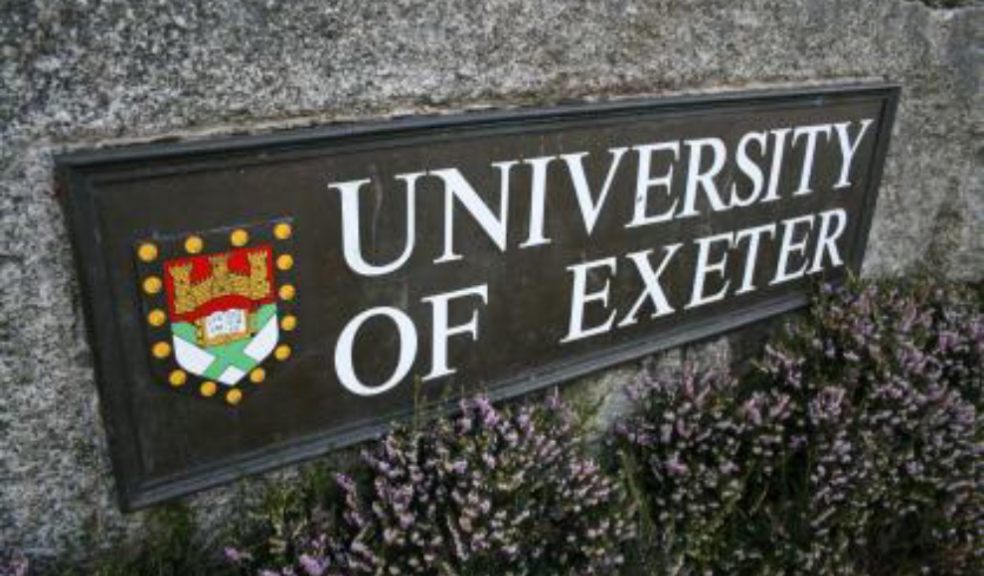
Exeter researchers secure prestigious national fellowships
Five leading researchers from across disciplines at the University of Exeter have received prestigious national fellowships, it has been announced.
Dr Rebecca Helm, Professor Oliver Hauser, Dr Jonathan Phillips, Dr Helen Eyles and Dr Joseph Costello have all given Future Leaders Fellowships, awarded by the UK Research and Innovation (UKRI) and announced today (April 23 2020).
They are part of a cohort of 90 new Fellows to be funded through the UKRI’s flagship initiative, which will help researchers and businesses to tackle some of the today’s most pressing global challenges.
Dr Helm, from Exeter’s Law School, will run a major new research project aimed at integrating research from cognitive science into policing and justice systems in England and Wales.
The first phase of the project aims to improve the way that testimony is evaluated in order to reduce wrongful convictions, and also to address systematic failures to prosecute effectively in cases such as sexual assaults, in which eyewitness testimony is often the primary evidence.
The research will improve decision-making in the legal system, helping police and the courts to more accurately evaluate evidence.
As part of the project, a "Laboratory for Evidence-Based Justice" will be founded at the University of Exeter, supported by practitioner partners and the Laboratory for Rational Decision-Making at Cornell University in the USA. The laboratory will conduct cognitive science and empirical law work. Practitioners will be able to refer cases or campaigns to the laboratory for assistance from academics. The laboratory will also develop new empirical databases that can be used by academics and practitioners.
Dr Helm said: “Integrating scientific and empirical research into procedure in the policing and justice systems has the potential to dramatically improve the administration of justice. Despite huge advances in our understanding of forensic science, memory and decision-making, the majority of legal practice is still guided by relatively outdated traditions. Science can provide insight which can help develop and improve the criminal justice process.”
Professor Hauser, Associate Professor of Economics at Exeter’s Business School, will investigate how to reduce bias and improve equality in the workplace. He will use insights from economics, psychology and management to design and test interventions at several UK organisations to see if they create more fairness in the workplace, reducing unconscious bias which negatively affects the careers of women, people from ethnic minorities and those from a lower socioeconomic background.
The randomised controlled trials will allow Prof Hauser to observe the actual hiring, promotion, and retention outcomes of disadvantaged groups at some of the largest UK employers.
Prof Hauser’s research focuses on inequality and cooperation in organisations, society and the environment. At the University of Exeter, he is the Theme Lead for Economics at the Institute for Data Science and Artificial Intelligence and a faculty affiliate of the Centre for Leadership. In addition, he serves as academic advisor to MoreThanNow, a UK-based behavioural consultancy, and he is an academic affiliate of the Behavioural Insights Team (“Nudge Unit”) and the WAGE Network of the UK Government Equalities Office.
Dr Jonathan Phillips, from Exeter’s Living Systems Institute, will lead the research project called Protein Choreography, which will answer key questions in the molecular mechanisms of life and will develop new tools for biotechnology and new therapeutics.
The pioneering project will seek to develop a “molecular movie camera” – studying the movement of protein molecules to understand how enzymes catalyse the processes that underpin life, disease and medicine in the human body.
The project will allow Dr Phillips, and his collaborating researchers at the University of Zurich, to produce data-driven videos of how proteins are moving and so gain a greater understanding of the processes behind those movements. They will then use that information to design new ‘allosteric’ medicines and new biotechnological tools.
Dr Phillips said: “This is a tremendous opportunity to dedicate myself to making a step change in the way we view protein molecules. This work aims to understand how the dynamic changes of these tiny molecules underpin living systems and how we can harness that to create new medicines and biotechnologies.”
Dr Joseph Costello, a lecturer in Biosciences, will seek to explore how different compartments inside cells communicate, and what happens when this communication breaks down.
The project, called “The Redox Triangle”, will use mammalian cells to investigate how three compartments (or organelles) - the endoplasmic reticulum, peroxisomes and mitochondria - communicate. These organelles are the major centres in the cell which are involved in both lipid exchange and the production and detoxification of waste products in the form of reactive oxygen species.
This novel and extremely exciting area of cell biology promises to deliver fundamental insights into organelle interactions events in cells and also establish how this fits into the broader cellular signalling network and how failure to communicate may be linked to disease.
Dr Costello said: "I am hugely excited to be given the oppurtunity to explore this novel and exciting area of research and look forward to starting my research programme".
Dr Helen Eyles, A Biosciences Research Fellow who specialises in plant pathology, has also received a Fellowship for her project entitled Epiphytic ecology and nutrition for control of a wheat pathogen”.
Dr Fones’ research concerns Europe’s most problematic pathogen of wheat, the fungus Zymoseptoria tritici. Wheat yields can be reduced by this fungus by 10%, despite growing the most resistant wheat varieties and treating them with fungicide.
Dr Fones’ research has highlighted some unusual features of the way that the fungus interacts with the wheat plant, and she will use the FLF to investigate this in more detail. She will determine how the fungus obtains nutrients early in infection and how this may be influenced by other microbes on the leaf surface, as well as by the plants’ defences.
This work is designed to identify new ways to control the fungus, reducing our reliance on fungicides in agriculture. Reducing fungicide use is increasingly important, as fungi are becoming resistant to fungicides used in agriculture. Since this resistance can sometimes move from fungi that infect crops into fungi that infect us, this research is important for human health, as well as food security.
Professor Neil Gow FRS, Deputy Vice-Chancellor for Research & Impact at the University of Exeter said: “The Future Leaders Fellowships are given to the most talented researchers and innovators in their fields, and encourage them to tackle some of the toughest and most important research questions worldwide.
“We are delighted that five researchers from the University of Exeter have received these prestigious Fellowships, which stands as a testament to their already pioneering work. We are committed to supporting research innovation careers and we look forward to working with our Future Leaders on these pioneering projects.”
Sir Mark Walport, Chief Executive of UK Research and Innovation, said: “The Future Leaders Fellowships are UKRI’s flagship talent programme, designed to foster and nurture the research and innovation leaders of the future. We are delighted to support these outstanding researchers and innovators across universities, research organisations and businesses.”
Kirsty Grainger, Director of the UKRI Future Leaders Fellowships, said: “That businesses are hosting Future Leaders Fellows demonstrates the fellowships’ potential to create innovative solutions that can deliver transformational change for industry and wider society.
“The Future Leaders Fellows represent some of the most brilliant people working in the country. We’re supporting researchers from every background – from the arts to medicine, and the social sciences to engineering – helping them become the research and innovation leaders of the future.”
UKRI’s initiative aims to support the creation of a new cohort of research and innovation leaders who will have links across different sectors and disciplines. Awardees will each receive between £400,000 and £1.5 million over an initial four years. The grant supports challenging and novel projects, and the development of the individual, and can pay for team members’ wages, equipment and other needs.

















